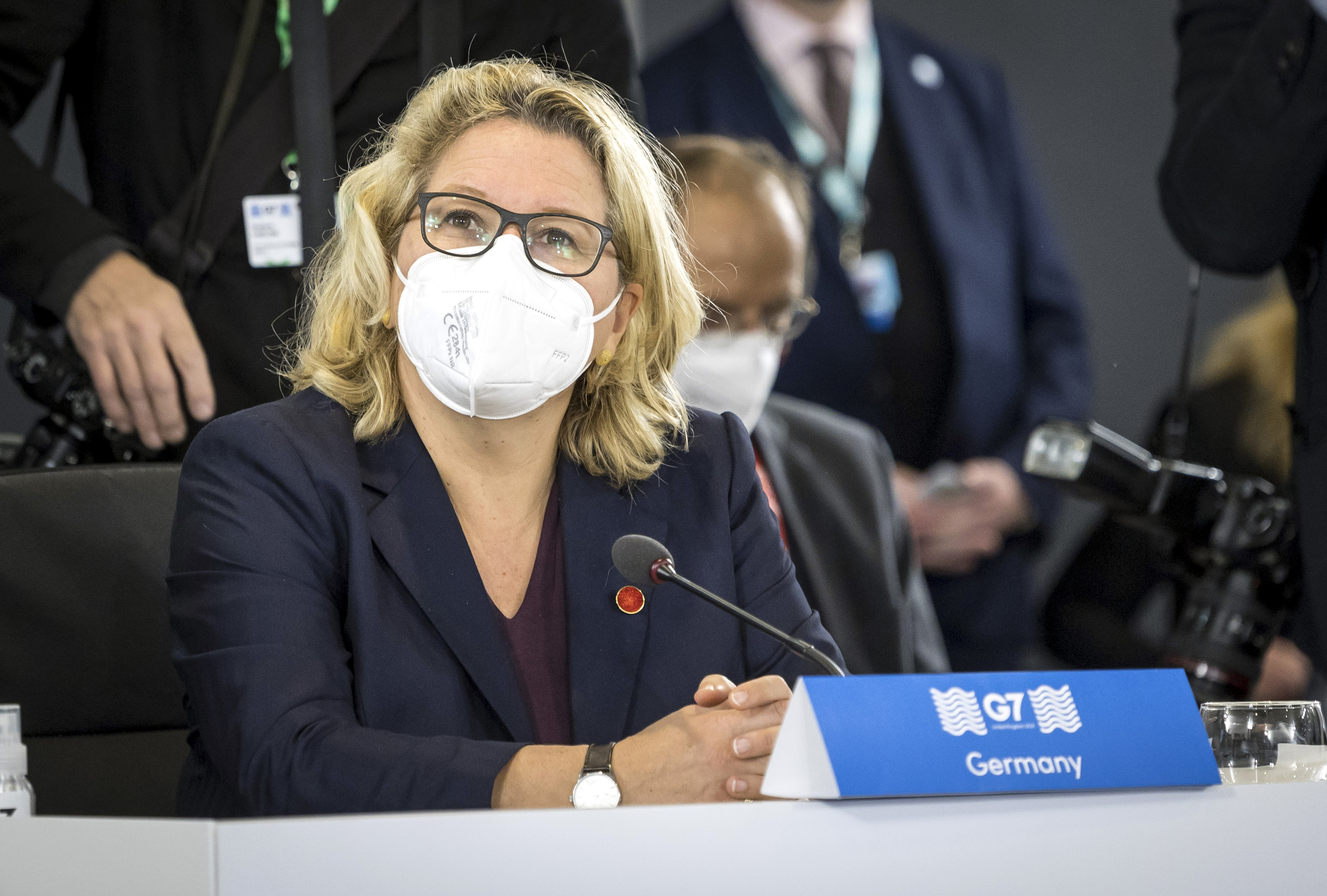What is the G7 and how does it operate?
Federal Development Minister Svenja Schulze at the start of the last meeting of G7 foreign and development ministers under the British G7 Presidency, on 12 December 2021 in Liverpool.
The G7 countries make up around ten per cent of the world’s population and generate about 45 per cent of global gross domestic product. They are among the biggest contributors to the funding for international organisations and account for about 75 per cent of the global official development assistance (ODA) recorded by the OECD.
The summit meeting is the highlight of a G7 year. At these summits the G7 heads of state and government discuss key global policy issues, exchange views and work together to develop constructive solutions. Over the years a closely woven process of political consultation between the governments of the member countries has developed around the summit meetings. For example, ministers from various ministries have their own meetings to discuss specific issues and global challenges.
The groundwork for the outcomes of the summits is done by government officials known as sherpas (senior negotiators) and sous-sherpas; preparation for ministerial meetings is carried out as needed by working groups. In addition to the summits and ministerial meetings that are part of the G7 framework, other publicity events or expert dialogues on the priority topics of the respective presidency may also be organised.
